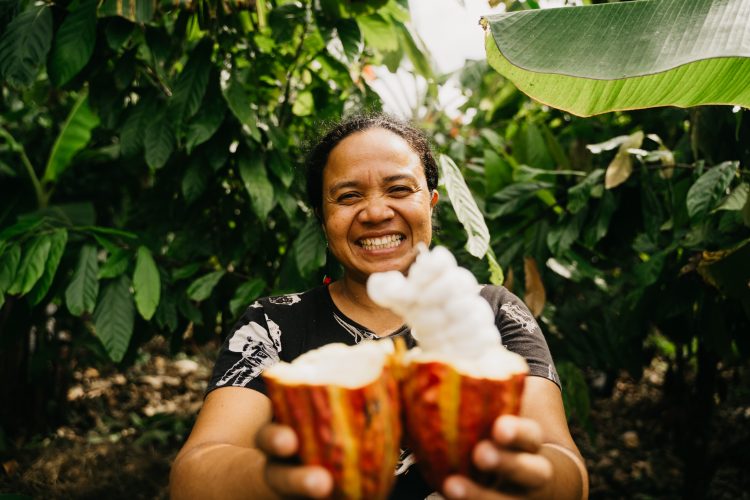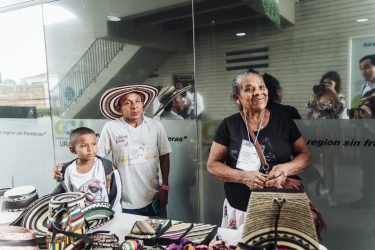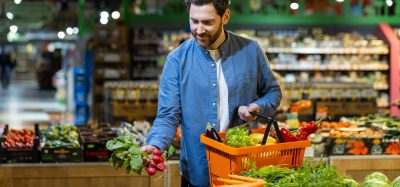Luker Chocolate’s sweet balance: tradition, innovation and sustainable cocoa
- Like
- Digg
- Del
- Tumblr
- VKontakte
- Buffer
- Love This
- Odnoklassniki
- Meneame
- Blogger
- Amazon
- Yahoo Mail
- Gmail
- AOL
- Newsvine
- HackerNews
- Evernote
- MySpace
- Mail.ru
- Viadeo
- Line
- Comments
- Yummly
- SMS
- Viber
- Telegram
- Subscribe
- Skype
- Facebook Messenger
- Kakao
- LiveJournal
- Yammer
- Edgar
- Fintel
- Mix
- Instapaper
- Copy Link
Posted: 1 April 2025 | Ben Cornwell | No comments yet
Luker Chocolate is redefining cocoa innovation, fusing tradition with bold sustainability, advancements in technology and farmer empowerment to craft ethical chocolate.


Credit: Luker Chocolate
For Luker Chocolate, tradition isn’t something they’re trying to shake off. It’s something they’re proud to build on. This Colombian, family-owned chocolate maker has been around for more than a century, and over that time they’ve perfected the delicate art of balancing age-old techniques with progressive innovation.
Alone we may go faster, but together we go further…
Today, the company is a global supplier, creating ethical, purpose-driven chocolate for brands and retailers around the world.
But despite how far they’ve come, they remain rooted in the rich soil of Colombia’s cocoa fields and in the knowledge passed down through generations of farmers.
Cocoa at the core
“All our modern advancements are founded on the ancestral knowledge that remains at the heart of our artisanal agriculture and production,” explains Julia Ocampo, VP of Cacao Sourcing & Sustainability at Luker Chocolate.
That fusion of past and future is what makes the company unique. At the heart of its work is Cacao Fino de Aroma, a premium cocoa known for its unique flavour and complexity. This isn’t your average bulk cocoa; it’s a product that demands care, attention and expertise; not just in processing but from the moment the trees are planted.
That’s why Luker works directly with smallholder farmers, forming long-term partnerships built on trust and transparency – principles that also shape its Creating Shared Value (CSV) approach. This model ensures that every link in the value chain, from farmer to manufacturer to customer, benefits from ethical and sustainable practices.
This collaborative ethos isn’t just a nice-to-have. It’s crafted into its very cocoa core. A great example is The Chocolate Dream, a sustainability initiative that fosters a shared sense of purpose among stakeholders, including clients. In 2024 alone, it positively impacted 12,400 hectares through sustainable practices — enhancing biodiversity, conserving water and protecting forests — while also improving the lives of 4,320 families.
Ocampo reinforced this philosophy:
Our triple impact vision can only be achieved by going ‘beyond sustainability’ – a philosophy centred on building fair and meaningful relationships with every stakeholder, founded on trust and transparency.”
Where tradition and technology meet
One of the clearest examples of Luker’s commitment to this balance is Granja Luker, its research and training centre founded back in 1963. Part research hub, part living classroom, Granja Luker is where scientific innovation and traditional farming techniques come together — a physical embodiment of the company’s ethos.


Credit Luker Chocolate
Farmers work alongside researchers to test, refine and improve farming techniques, always with one foot firmly planted in tradition.
Take biofactories, for example; these on-farm setups use natural materials like manure and sulphates to create organic fertilisers. It’s a practice rooted in local farming wisdom, but at Granja Luker, it’s optimising it with data and scientific precision.
The result? Higher yields, healthier soils and better-quality cocoa, all while keeping input costs low for farmers.
That spirit of innovation extends far beyond fertiliser. AI is starting to play a bigger role in Luker’s work, too, using AI-powered image analysis to detect Monilia, a fungal disease threatening cocoa farms in the Americas. Ocampo adds, “While still in the research phase, early detection is a critical area of study to understand how AI might contribute to protecting both crops and farmers’ livelihoods.”
As Ocampo alluded to, spotting signs of disease early could help farmers protect their harvests before major losses set in, a perfect example of how technology can enhance, rather than replace, traditional farming knowledge.
AI is also making its way into quality control. At cocoa purchase points, farmers’ beans are graded based on fermentation quality, a key driver of flavour. Historically, this was done by eye, with experts visually inspecting the beans and setting prices accordingly. Now, their AI-powered app analyses bean colour with greater accuracy, speeding up grading and ensuring fairer, faster payments for farmers while maintaining quality standards.
Tracking every step
Traceability is another area where Luker’s innovative streak shines. With LukerTrace, a blockchain-powered platform launched in 2020, the company can track every step of a cocoa bean’s journey, from farm to finished product. For consumers, that’s a guarantee of ethical sourcing. For farmers, it’s a tool that could eventually unlock better prices by proving the added value of sustainable practices.
Traceability is also becoming a regulatory necessity. The European Union Deforestation Regulation (EUDR), which takes effect on December 30 2025, will require companies to prove their products are deforestation-free. Thanks to LukerTrace, the company is already ahead of the curve. “At Luker, we have been preparing for this since 2020,” Ocampo says. “This level of traceability will soon become an industry standard — not just for compliance, but as a way for brands to demonstrate their commitment to ethical sourcing.”
Innovation beyond technology
But not all innovation comes from a lab or a software update. Some of the company’s most forward-thinking work is happening in its efforts to inspire the next generation of cocoa farmers. Across Colombia, rural youth are increasingly leaving farms for cities, drawn by the promise of better opportunities. If that trend continues, the generational knowledge that makes Colombian cocoa so special could be lost.
To address this, the chocolate makers are developing education and entrepreneurship programmes to show young people that cocoa farming can be a viable, innovative career —one that combines traditional knowledge with modern tools like regenerative agriculture and digital technologies.
Young Colombians’ interest in, and passion for, cacao is essential to the future success of our sector. It also means we can continue to make the world a better place through chocolate.”
That future also includes thinking differently about waste. Cacao fruit pulp, which traditionally goes unused after beans are harvested, is now being explored as a raw material for new products, creating fresh revenue streams for farmers while offering brands new flavour experiences to experiment with.
All of this, from soil health to supply chain tech to youth engagement, is held together by the team’s collaborative spirit. Its B Corp certification isn’t just a badge; it’s a reflection of the company’s belief that progress happens when everyone, from farmers to brands, works together. “Alone we may go faster,” Ocampo reflects, “but together we go further.”
Lessons for the wider food industry
Luker Chocolate’s story offers a valuable reminder: innovation and tradition don’t have to be at odds. In fact, the most resilient, ethical food systems will be the ones that embrace both. It’s not about choosing between old and new, but about recognising that the most powerful innovations often come from respecting what came before and asking how it can work even better for the future.
For this Colombian chocolate maker, that’s not just a business philosophy. It’s the recipe they’ve been perfecting for over a hundred years — and they’re still refining it today.
Related topics
Data & Automation, Environment, Regulation & Legislation, Sustainability, Technology & Innovation, The consumer, Traceability, Trade & Economy









